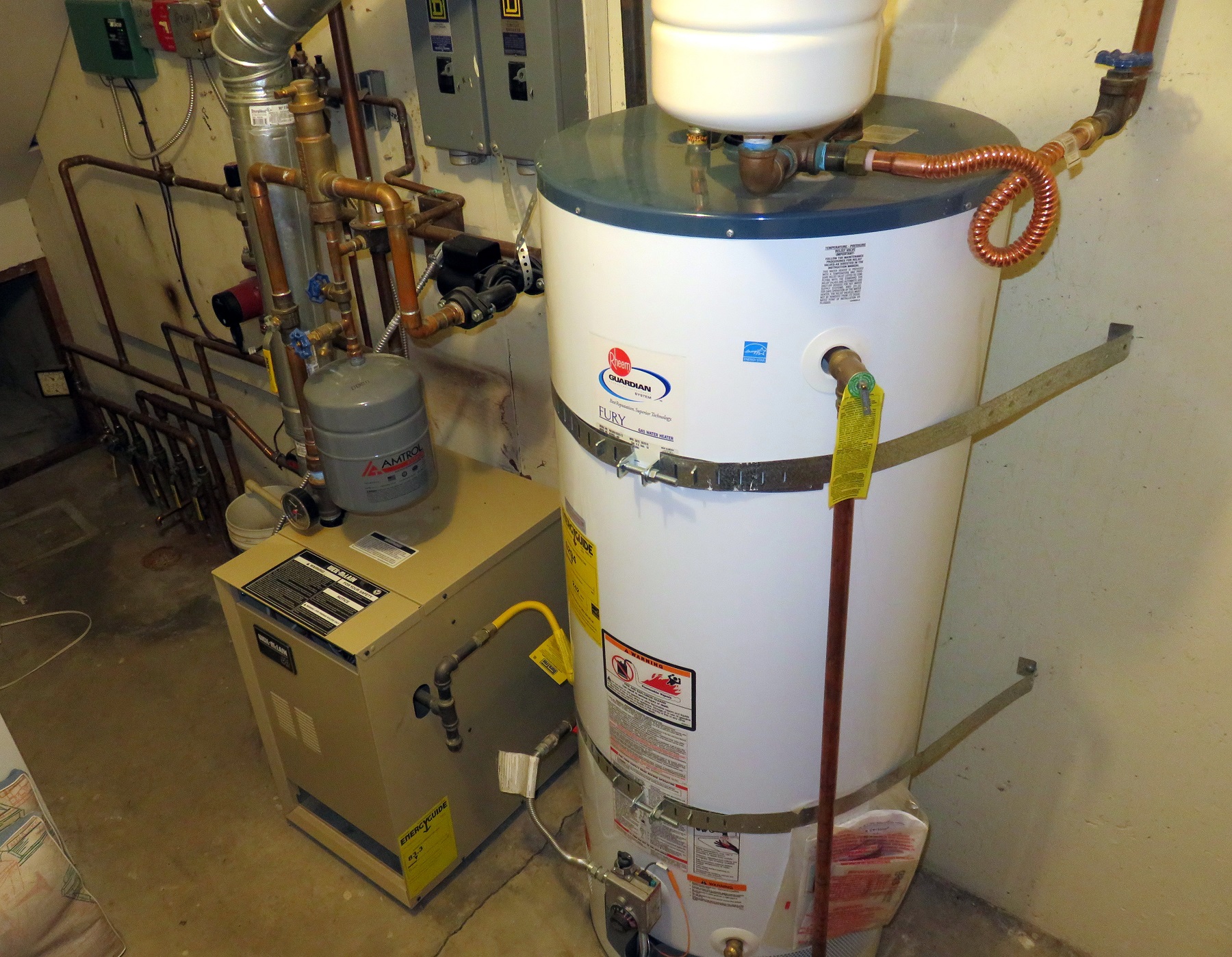OPB – Science & Environment
Goodbye, gas heat? Proposals in Washington state seek to phase out fossil fuel heating in buildings
A long goodbye to natural gas furnaces and water heating — and possibly other gas appliances — could begin with action by the Washington Legislature this winter. Separately, the Seattle City Council this week begins consideration of a similar proposal to eliminate fossil fuel-based heating in new commercial buildings.
“Buildings are one of our state’s most significant and fastest growing sources of carbon pollution. We must do better — and we can do better,” testified Michael Furze, head of the state energy office, on behalf of Democratic Gov. Jay Inslee.
Natural gas utilities and major business associations spoke against the state legislative proposal during an initial public hearing on Friday. The opponents said they want to preserve consumer choice and questioned whether the Pacific Northwest electric grid could handle a big increase in winter heating load.
In December, Inslee unveiled a package of measures to reduce greenhouse gas emissions, including this proposal to phase out natural gas for space and water heating. As initially conceived, Washington state would have forbidden use of fossil fuels for heating and hot water in new buildings by 2030. The plan sought to convert existing buildings to electric heat by 2050.
The scope of the measure was revised earlier this month when Inslee’s allies in the state legislature introduced identical proposals in the House and Senate to amend the state energy code. The 2030 date to ban heating with fossil fuels in new construction remains. There is no mandate to convert existing buildings from gas to electric heat, but an expectation that utilities will offer incentives for conversions.

“If we don’t start with clean new buildings, we’re going to be bailing water out of a boat while we’re still drilling holes in the bottom of it,” said state Rep. Alex Ramel (D-Bellingham), the prime sponsor in the House. “That’s why we need to accelerate and strengthen our state’s energy code.”
The legislation is silent about use of natural gas for cooking and clothes dryers. In an interview, Ramel said lawmakers want to transition those appliances to clean energy as well. However, the details may be worked out later between natural gas utilities and regulators at the state utilities commission.
During the well-attended virtual public hearing before the state House Environment and Energy Committee, Cascade Natural Gas, Puget Sound Energy and the utility trade group Northwest Gas Association raised objections.
“[This bill] would jeopardize energy reliability, drive up costs to customers and put gas industry employees across Washington out of work,” said Alyn Spector, energy efficiency policy manager for Cascade Natural Gas. “This is not the time to eliminate good paying jobs.”
Business lobbying groups, including the influential Association of Washington Business and the home builders’ Building Industry Association of Washington, also voiced their opposition.
“As we saw this summer in California, we cannot take a healthy grid for granted and losses from even short-lived interruption of power supply can run into the billions,” said Peter Godlewski with AWB. “Shifting consumers and businesses away from natural gas to electricity puts severe pressure on the electric grid as a time when we’re retiring more generating capacity than ever.”
At this juncture it is hard to gauge the prospects for the gas heat phaseout proposal. Inslee, who made combating climate change a central plank of his brief run for the Democratic presidential nomination in 2020, has the benefit of large, supportive Democratic majorities in both chambers of the state legislature. But the capacity of lawmakers to get much done beyond the basics of passing new state budgets and dealing with the coronavirus pandemic while conducting most business virtually remains to be seen.
Meanwhile, an assortment of West Coast cities are tackling carbon pollution from buildings independently. Around 40 climate-conscious California cities and counties have already passed laws or codes to require new buildings to be all-electric.
Later this week, the Seattle City Council begins consideration of an ordinance to ban the use of fossil fuels for heating in new commercial and large apartment buildings. The proposed policy change does not apply to single family homes and duplexes because the city’s energy code that is open for amendment pertains only to commercial buildings. The effective date of Jan. 1, 2022, is much sooner than the state legislature’s proposal in the same vein.
“In Seattle, 35 percent of carbon emissions are from the building sector and they are rising,” Seattle Office of Sustainability and Environment Director Jessica Finn Coven told state legislators in testimony Friday. “Constructing homes and buildings right the first time reduces the likelihood of costly retrofits in the future.”
The Bellingham City Council has also teed up electrification of buildings as part of a broader climate action package. In an email, Bellingham City Council member Michael Lilliquist said the pandemic had slowed down the work, but it is proceeding. He said city staff were running all of the proposed climate measures through a rigorous, multi-step evaluation process.
“We are not yet at the stage to offer specifics that can be incorporated into an ordinance or program,” Lilliquist said.
